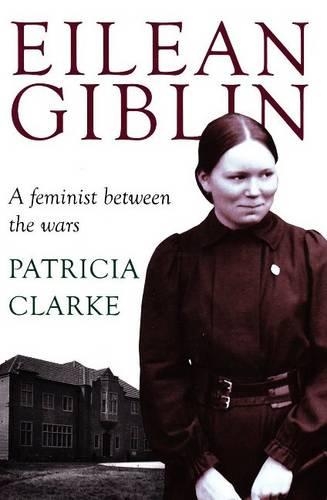
Eilean Giblin: A Feminist between the Wars
(Paperback)
Publishing Details
Eilean Giblin: A Feminist between the Wars
By (Author) Dr Patricia Clarke
Monash University Publishing
Monash University Publishing
1st July 2013
Australia
Classifications
General
Non Fiction
Biography: philosophy and social sciences
324.6230994
Physical Properties
Paperback
240
Width 153mm, Height 234mm
Description
Englishwoman Eilean Giblin arrived in Australia in 1919 with a shipload of war brides, almost certainly the only woman not wearing a wedding ring. An unconventional feminist, she arrived with a commitment to women's rights and social justice developed through the suffrage movement and the intellectual appeal of left-wing social and political ideas. During the next three decades in three Australian cities, she pursued roles relevant to her feminist and humanitarian ideals. In Hobart in the 1920s she campaigned for equal citizenship; she was the first woman appointed to a Tasmanian hospital board, and she represented Tasmania at the 1923 International Woman Suffrage Congress in Rome. In Melbourne in the 1930s she led a committee that achieved the long sought goal of a non-denominational university women's college. And in Canberra during World War II she was one of a small minority of Australians who championed the cause of the enemy aliens, many of them Jewish, deported from Britain on the ship Dunera, and she set off on a lone 500 kilometre journey to investigate their internment camp conditions.Patricia Clarke draws on original records and evidence, such as Giblins diary kept during World War II a unique social record and a powerful witness to the immense suffering and futility of war to portray the courageous public and private life of this unconventional feminist.
Reviews
Eilean Giblin was a pioneer who opened a door of possibility for women.
-- Dale SpenderAuthor Bio
Patricia Clarke is a writer, editor, historian and former journalist. Several of her eleven books are biographies of women writers and others explore the role of letters and diaries in the lives of women; she has also written extensively on media history. She is a Fellow of the Australian Academy of Humanities and was founding honorary secretary of the Independent Scholars Association of Australia. She is a Fellow of the Federation of Australian Historical Societies, a former President of the Canberra and District Historical Society and edited the Canberra Historical Journal for fourteen years.
